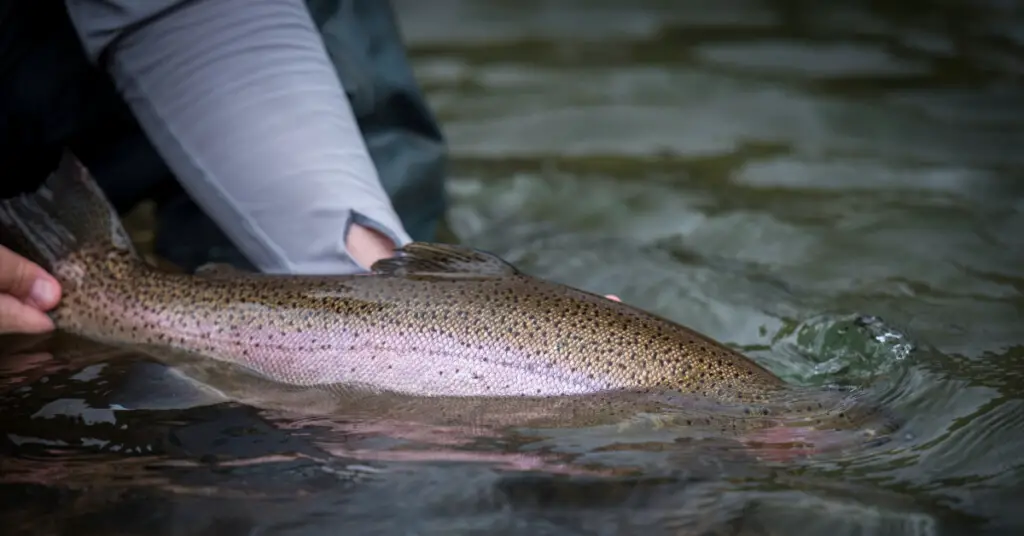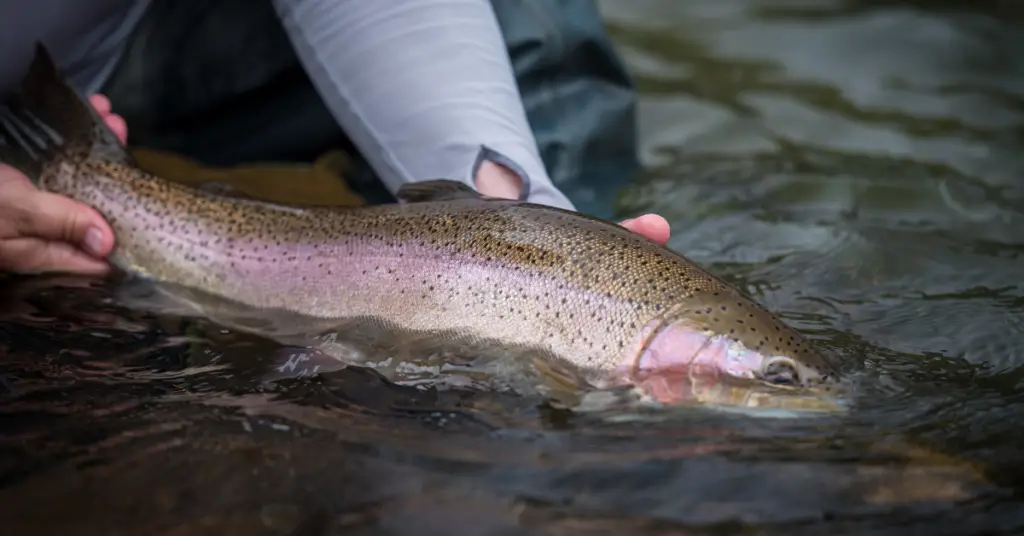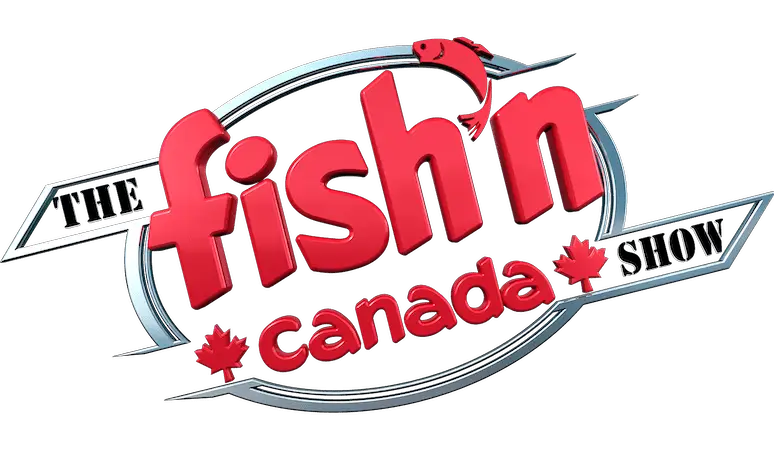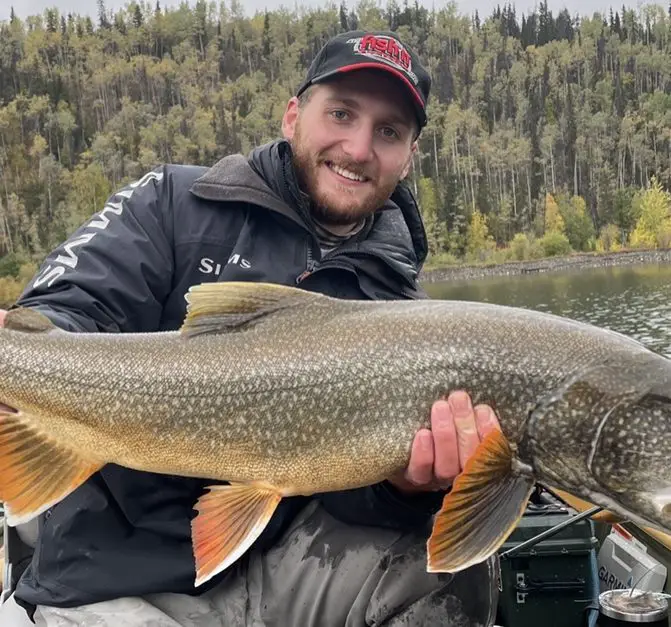This is Part 3 in our series on catch and release fishing. In our first article, we looked at how a movement that began on the chalk streams of England influenced an entire continent’s approach to fisheries management. In Part 2, we dove into the numbers and responded to the claims from PETA and other animals rights organizations that catch and release is ineffective and cruel.
Today, I will attempt to tackle the tough part and lay out my argument for why I think the overall value of catch and release fishing outweighs the animal welfare concerns that have led to it being banned in countries such as Germany and Switzerland.

Now that we have covered both the history and the science behind catch and release fishing, it is time to get to the tricky part – the ethics.
While numbers and figures may be great for painting a picture of how effective catch and release fishing is at sustaining our fish populations, it is the questions around ethics, not efficacy, that are driving countries to ban the activity.
As seen in Germany and Switzerland, animal welfare is the primary concern with fishing for pleasure – and this is a hard case to refute. After all, catch and release fishing, as a concept, is unquestionably odd and, if fish feel pain like we do, undoubtedly cruel. But should this be the end of the conversation? Or does fishing, despite its strange and bloody aspects, have a larger role than just food acquisition?
More than “Playing with Food”
As discussed in part 1 of this series, recreational fishing has been more than just “playing with food” since its inception. In the first-ever recognition of angling for the purpose of sport, Dame Juliana Berners wrote of angling’s ability to “serve a man for solace, and to cause the health of his body, but especially of his soul.” Later, Sir. Izaak Walton touted the activity as being equivalent to art and worthy of equal dedication.
These things, to the general population, seem subjective. But among anglers, they are far less so. I have yet to meet an angler in my lifetime who has not dedicated significant portions of their lives to fish. Whether this be monetary, in the licenses they buy and the gear they purchase, or physical, in the days spent on the water or on the television, in books, and on the internet learning about the creatures they seek to catch. All of these people dedicate large portions of their lives to understanding, finding, catching, holding, photographing, and conserving fish that would otherwise never have entered their minds if it was not for angling and the peace, comfort, and enjoyment they find in it.

Aldo Leopold, in his A Sand County Almanac, stated that “all conservation of wildness is self-defeating, for to cherish we must see and fondle, and when enough have seen and fondled, there is no wilderness left to cherish.”
Leopold’s claim is as relevant now as it was back in 1949, but the scope in which it covers no longer includes the water. Catch and release fishing, in fact, directly opposes it. No longer does an abundance of anglers ruin a resource, but through exploiting our fisheries in a mindful way, we are now able to invite generations of new anglers to cherish the resources we have and inspire in them the will to conserve it for the future.
On Fish Feeling Pain
Lastly, I feel that to fully address the ethical argument for catch and release fishing, we must at least entertain the opponent’s primary argument and, despite what the science says, assume that fish feel pain in the same way we do.
So, if our current scientific understanding of the topic was proved to be flawed, and fish were to experience pain in similar ways that we do, should catch and release fishing come to an end?
My answer is still no.
If fish did feel pain in the same way that we do and animal welfare concerns were valid, opponents of the activity would surely have a stronger case, gear regulations would have to strengthen, and fishing would likely move into the fringe territory that hunting currently exists in.
But just as the concerns over pain would be valid at the individual level of the fish, so would the fact that humans are part of the natural environment and, given our current circumstances, many fish species would not, and cannot, exist without the help of anglers. No amount of sign-holding and street-marching can bring back our depleted Salmon populations and leaving the lakes alone will not recover our struggling Lake Trout. It is up to anglers to create the demand for the research, protection, and funding necessary to bring these fish back from the brink.
Humans need to see, feel, and understand things in order to care about them, and recreational fishing is perhaps the best way to access a world that would otherwise be forgotten and ignored.






2 Responses
Hi Dean,
A little bit of me.
I was around fishing a lot during my childhood.
Father, brother, uncles were very passionate about fishing and hunting.
The adrenaline pumping through my veins when accompanying them is unforgettable.
There was no concept of catch and release at the time. Everything caught was meant to be eaten.
Coming to Canada 25 years ago, exposed me to the Catch and Release idea.
I have started to use it, as it made sense at the time.
About 7 years ago, while visiting Switzerland and looking into their regulations, I found that you have to keep what you catch. The limits are much less generous than here in Ontario.
Now, over the last two years, Fish’n Canada Show had extensively covered the sport fishing and the biology of the fish through their live podcasts. I have learned a lot.
The one aspect that struck me, was the bass release away from their habitat and their limited chance of survival through starvation.
From that point on, I couldn’t be fan of the bass competitions.
How does this apply to me?
Well, I think a combination of fishing for pleasure and keeping what you catch within the limits is the answer. Also, I will stop fishing when I know I will not eat a fresh meal. That means less than the limit.
Let’s face it, frozen fish is not as good and many times is forgotten in the freezer and throw away anyway.
Isn’t this exactly what Switzerland regulation is all about?
No more thoughts about the survival rates of the released fish.
I understand the a huge impact on economics here in North America, if implemented.
But isn’t economics, what has brought us to over fishing and impacting the balance of nature.
Catch and release was hard to implement at the beginning, but it has solved only half of the matter.
Maybe it is time to understand, that we can be part of the solution and not part of the problem.
Regards,
Adrian Decsei
Well said, Adrian! Your philosophy on fishing is definitely admirable and I think a lot of our lakes would benefit if more felt that way.
In terms of the Switzerland law, I believe you are right that there are absolutely some benefits to it but I think it is more founded in animal rights concerns than any consideration of management practices. Although they may seem to end up at the same place on occasion, I fear that giving these groups too much power in the angling space may be a slippery slope and shift the focus away from conservation and more towards emotion (as we have already seen in hunting).